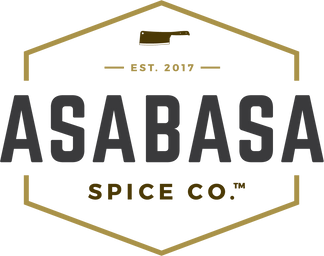A Journey Through Time: The Origins of Spices
Spices have been an integral part of human history for thousands of years, shaping civilizations, economies, and cultures. Their origins date back to the earliest human civilizations, where they were used not only to flavor food but also for medicinal, spiritual, and ceremonial purposes.
Archaeological evidence suggests that as early as 2000 BCE, ancient Egyptians used spices like cinnamon and cassia in embalming rituals, a testament to their value and revered status. Similarly, ancient texts from India and China reference the use of turmeric, ginger, and cardamom in traditional medicine, culinary practices, and religious ceremonies. The Silk Road, spanning thousands of miles across Asia, the Middle East, and Europe, became the backbone of the spice trade, connecting distant regions and fostering cultural exchanges.
During the Age of Exploration in the 15th and 16th centuries, European powers embarked on perilous journeys to discover new trade routes to the "Spice Islands" in present-day Indonesia. The quest for spices such as nutmeg, cloves, and black pepper fueled exploration, leading to the establishment of global trade networks and the eventual colonization of several regions.
Spices and Their Role in Health and Wellness
From ancient Ayurvedic practices to modern holistic medicine, spices have been celebrated for their medicinal properties. Many of the health benefits of spices are backed by science, proving their efficacy in promoting physical and mental well-being.
-
Turmeric: Known for its active compound curcumin, turmeric is a powerful anti-inflammatory and antioxidant. It has been used in Ayurvedic and Chinese medicine to treat conditions ranging from arthritis to digestive issues. Modern studies highlight its potential in managing chronic diseases such as heart disease and Alzheimer's.
-
Ginger: A common remedy for nausea and digestive discomfort, ginger is also praised for its anti-inflammatory properties. It’s used to alleviate symptoms of colds, flu, and menstrual pain.
-
Cinnamon: This aromatic spice is not only a flavorful addition to dishes but also known for its ability to regulate blood sugar levels. It’s rich in antioxidants and may improve heart health.
-
Cardamom: Often called the "Queen of Spices," cardamom is celebrated for its digestive and detoxifying properties. It’s also believed to enhance respiratory health and combat bad breath.
-
Cloves: Packed with antioxidants, cloves have been used for centuries to relieve toothaches and improve oral health. Their anti-inflammatory and antimicrobial properties make them a staple in traditional remedies.
Spices as a Unifying Force
Beyond their health benefits, spices hold a unique ability to bring people together. Food, enriched with spices, is a universal language that transcends cultural boundaries. Across the globe, spices are central to traditional recipes that reflect the heritage and identity of communities.
-
Cultural Exchange: The trade and sharing of spices have historically facilitated cultural exchange. The fusion of Indian spices with British culinary traditions during the colonial era gave birth to dishes like curry, which remain popular worldwide.
-
Family and Community Bonds: In many cultures, the preparation of spice-rich meals is a communal activity, strengthening family ties and fostering a sense of togetherness. From the fragrant biryanis of South Asia to the spicy gumbo of Louisiana, these dishes tell stories of tradition and community.
-
Celebrations and Rituals: Spices play a crucial role in festivals and ceremonies. For example, saffron is a prized ingredient in Persian wedding feasts, while nutmeg and cloves feature prominently in holiday desserts in Western cultures.
The Modern Revival of Spices
Today, there is a growing appreciation for the rich history and versatility of spices. As people seek natural ways to enhance their health and culinary experiences, spices have become central to wellness trends and global cuisine.
-
Sustainability and Ethical Sourcing: Consumers are increasingly prioritizing sustainably and ethically sourced spices. Supporting small-scale farmers and fair-trade practices ensures that the age-old traditions of spice cultivation thrive while empowering farming communities.
-
Culinary Innovation: Chefs and home cooks alike are rediscovering spices as tools for creativity. Fusion cuisines, artisanal spice blends, and innovative recipes celebrate the timeless appeal of spices.
-
Holistic Wellness: Spices are a cornerstone of modern holistic wellness. From golden turmeric lattes to adaptogenic spice blends, they are seamlessly integrated into daily routines, emphasizing their role in maintaining balance and vitality.
Conclusion: Spices as Timeless Treasures
The history of spices is a testament to their enduring significance. They have been coveted, fought over, and cherished for millennia. Beyond their ability to transform dishes, spices hold the power to heal, connect, and inspire. As we continue to embrace their legacy, spices remind us of our shared humanity and the beauty of cultural diversity.
Whether it’s the comforting aroma of cinnamon on a cold winter morning or the fiery kick of Firedirt Reserve Rub in a summer barbecue, spices have a way of evoking memories and creating new ones. They are more than just ingredients—they are timeless treasures that enrich our lives, one flavorful moment at a time.


